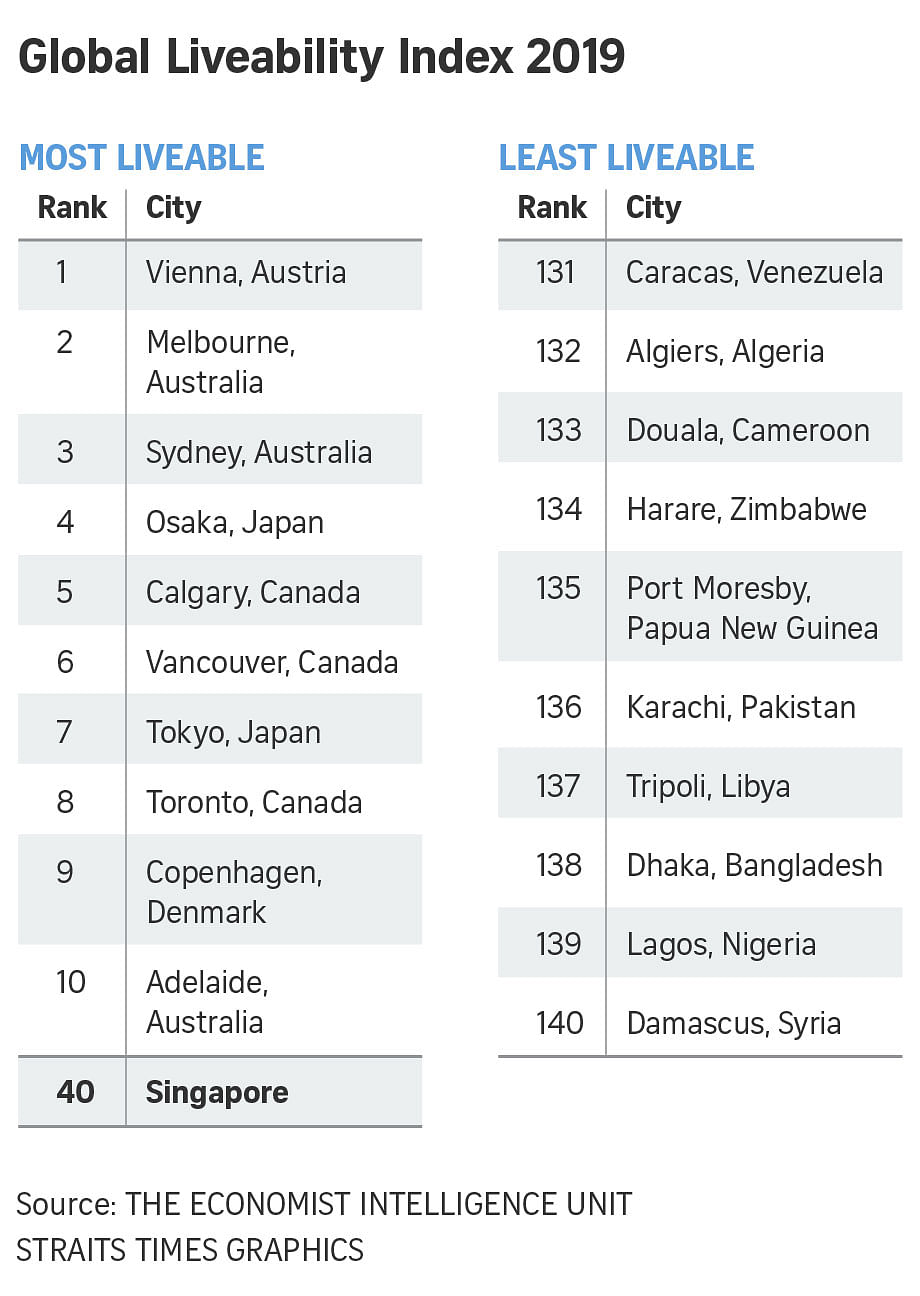SYDNEY • Financial hubs like London, New York and Singapore did not fare well in a survey of the world's most pleasant cities to live in.
Singapore slipped three places to 40th spot in the Economist Intelligence Unit's (EIU) 2019 Global Liveability Index, behind Hong Kong - at 38th place from 35th last year - but ahead of London (No. 48) and New York (No. 58).
The ranking was compiled before Hong Kong's recent political upheaval, but the disruption will likely show up next year. "I think it's probably safe to say that Hong Kong's rating will suffer quite significantly," said EIU's regional director for Asia Duncan Innes-Ker.
EIU's ranking showed that the world's most liveable cities are generally less global capital, more regional second city.
Vienna took the top spot for the second year running, confirming that life is officially better on the banks of the Danube than it is by the Yarra River in Melbourne, which took second place.
Australia and Canada dominate the top 10 with three cities each, while Osaka, Tokyo and Copenhagen complete the list. Melbourne, Sydney and Adelaide are judged to offer the Antipodes' best quality of life, while Calgary, Vancouver and Toronto are North America's top locations.
No city in the United States made it higher than No. 22, with Honolulu ranked as its top performer.
"Overall, our index remains dominated by medium-sized cities in wealthy countries," the report notes, pointing to high-quality education, well-funded public healthcare and functional transport systems. These cities - with populations that number anywhere from 300,000 to one million - hit the sweet spot between overcrowded and underdeveloped.
"The upsides of these cities tend to be fully realised. You get a good collection of cultural activities, you get good access to healthcare and education," said Mr Innes-Ker. "But you don't get a lot of downsides that tend to come with big cities, things like traffic congestion, crime problems and general wear and tear."
To assess living conditions, the index examines the quality of healthcare, education, infrastructure, stability and culture. Each city is graded on over 30 factors, which are then compiled into a weighted score of between one and 100.
At 99.1, Vienna's 2019 liveability score is almost perfect. Melburnians and others should not feel too put out though: The scores among the top 20 cities vary by fewer than five points. Across the board, the report points to improved quality of living, thanks to strengthened stability, as well as better education and healthcare systems - especially in emerging markets.
But climate change puts these gains at risk, the report said, noting that cities such as New Delhi and Cairo have slipped down the rankings as a result of worsening pollution. Sitting right at the bottom of the list are Dhaka, Lagos and Damascus, with the war-torn Syrian capital retaining the last position for the past seven years.

BLOOMBERG
• With additional information from The Straits Times

